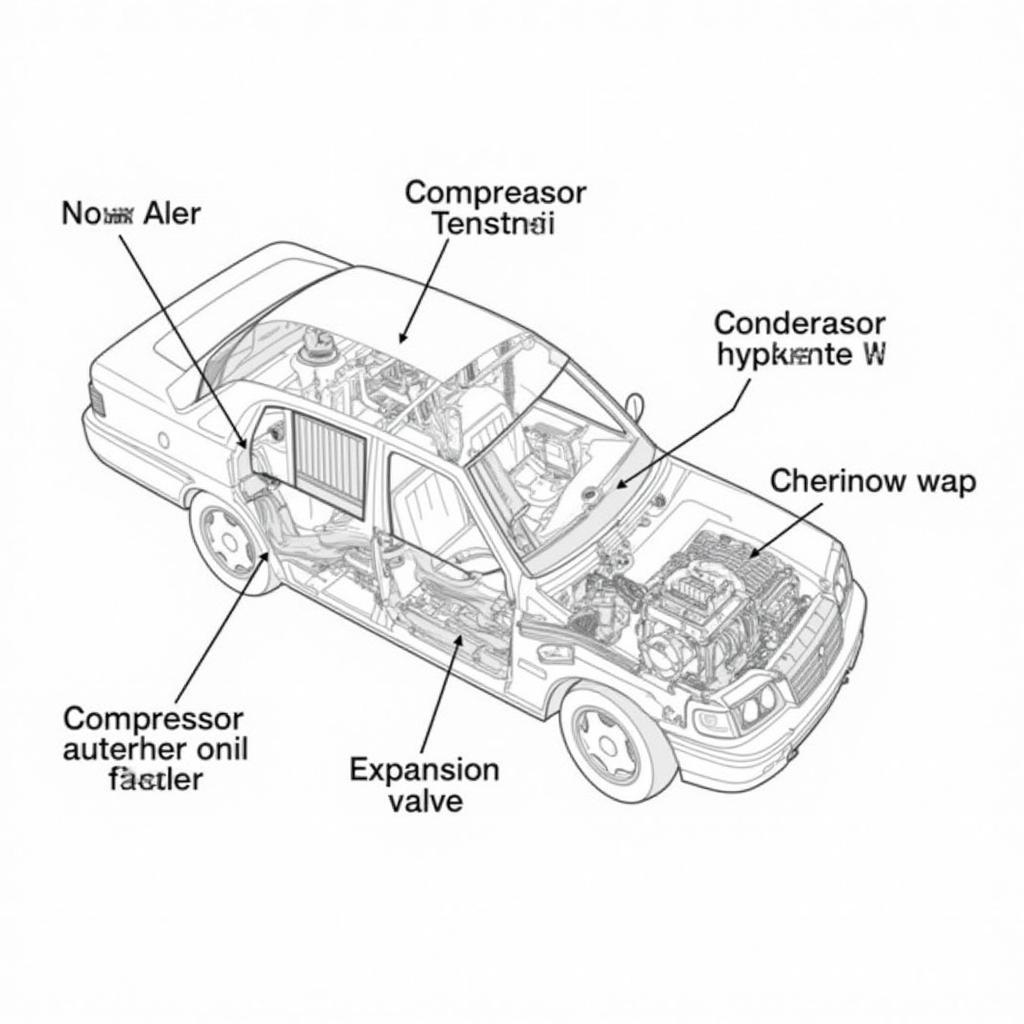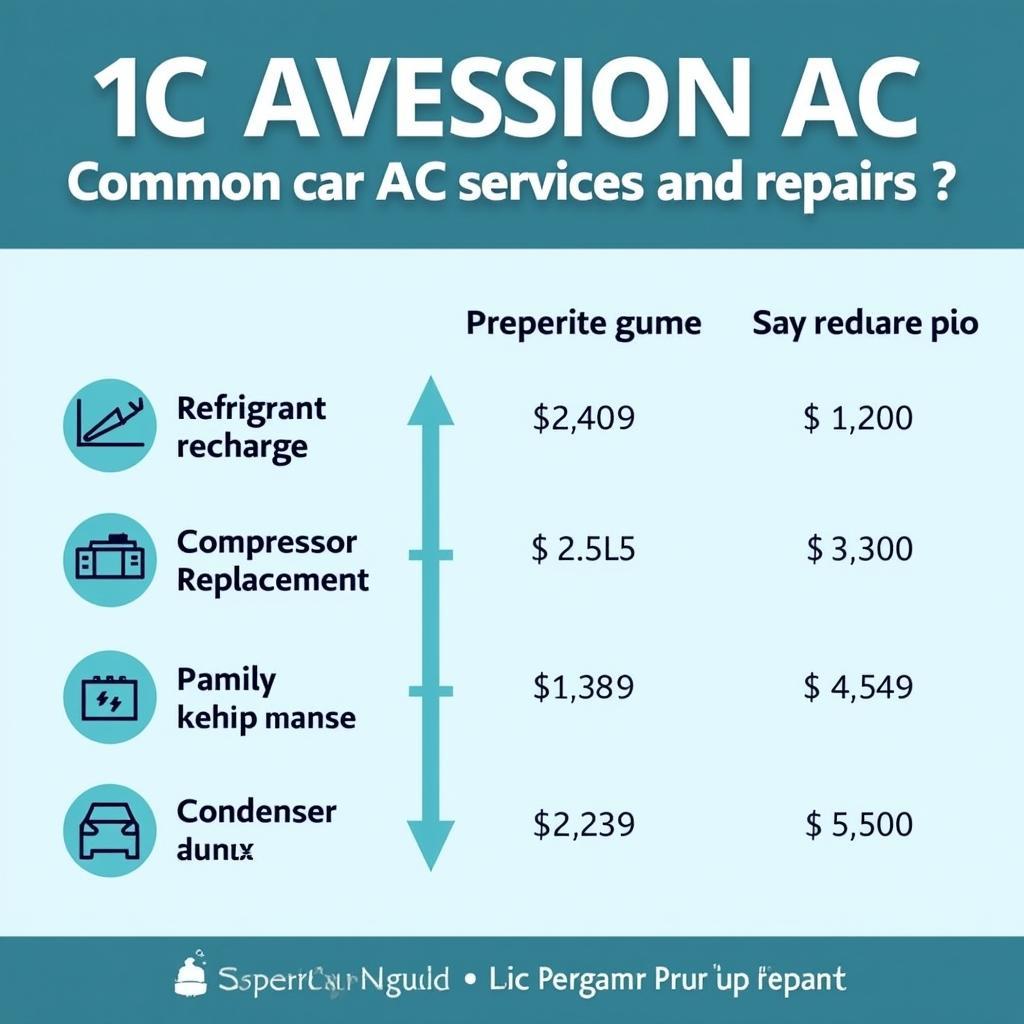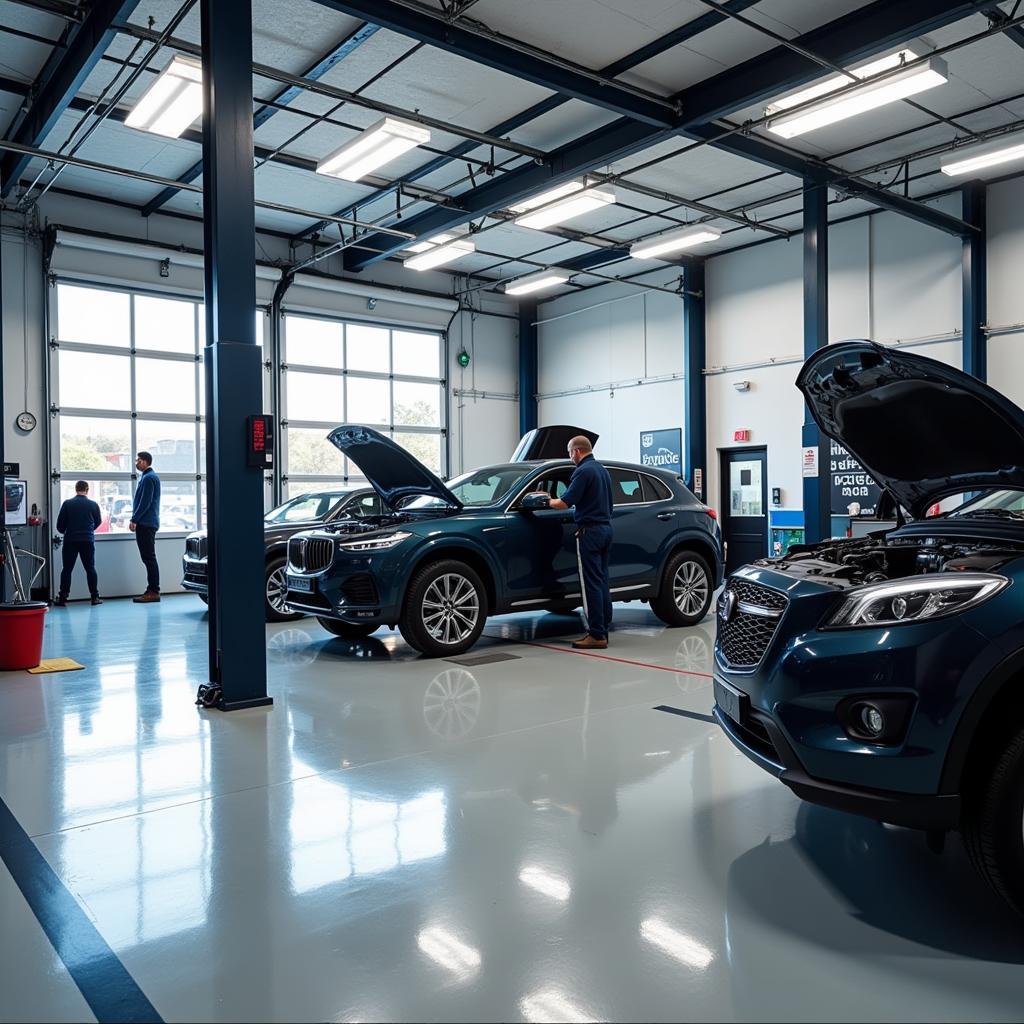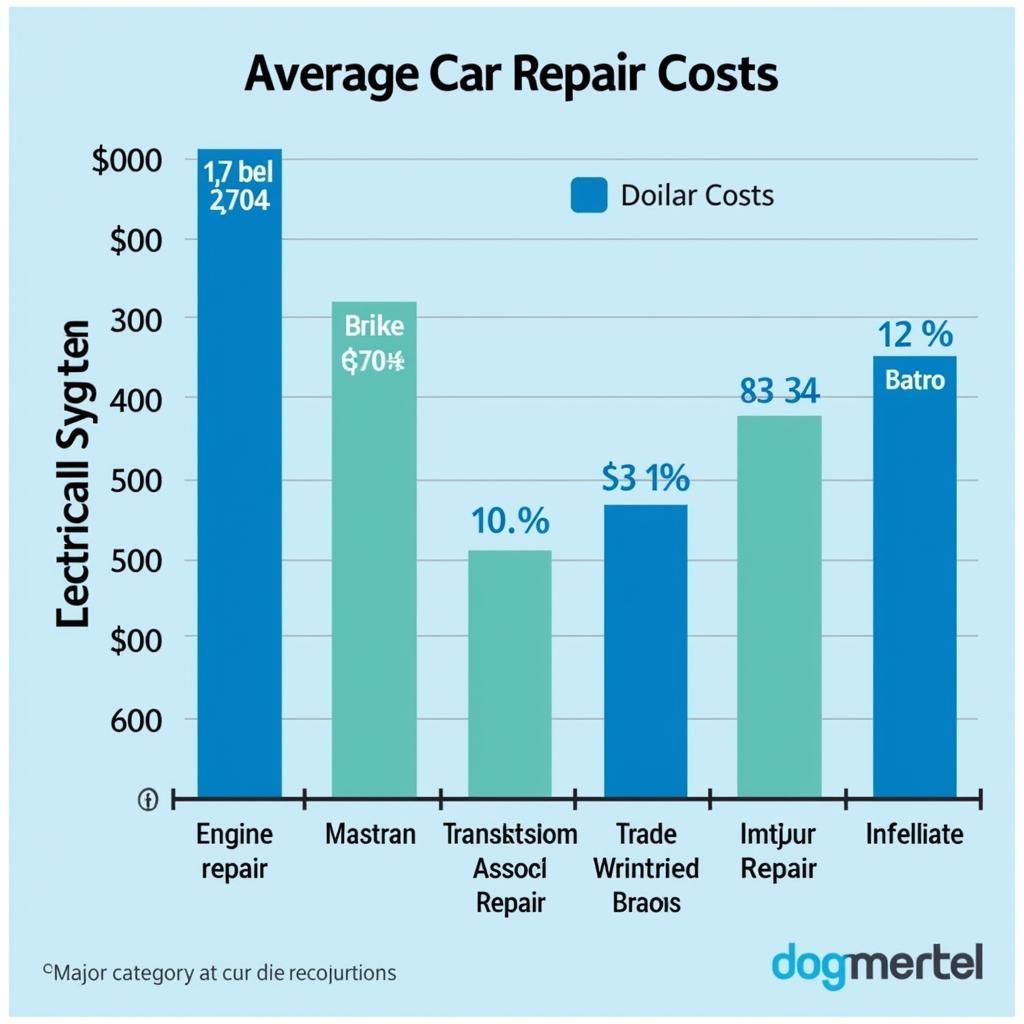Car Air Conditioning Service: Keeping Your Cool On the Road
Your car’s air conditioning system is more than just a luxury on a hot day, it’s essential for a comfortable and safe driving experience. Regular car air condition service ensures optimal performance, fuel efficiency, and prevents costly breakdowns.
 Car AC System Components
Car AC System Components
Understanding Your Car’s AC System
Before diving into car air condition service, it’s helpful to understand the basics of how this system operates. Your car’s AC doesn’t “create” cold air, rather it removes heat and humidity from the air inside your vehicle. This is achieved through a closed-loop system containing refrigerant, a special fluid that absorbs and releases heat.
The refrigerant circulates through various components:
- Compressor: This component pressurizes the refrigerant gas, raising its temperature.
- Condenser: Located at the front of your vehicle, the condenser cools the high-pressure refrigerant gas, transforming it into a liquid.
- Expansion Valve: This valve regulates the flow of liquid refrigerant into the evaporator.
- Evaporator: Positioned inside the dashboard, the evaporator absorbs heat from the cabin air as the refrigerant evaporates back into a gas. This cooled air is then blown into the cabin.
When Does My Car Need Air Condition Service?
While modern car AC systems are designed for durability, regular service is crucial. Here are key indicators your car might need attention:
- Insufficient Cooling: If the air coming from your vents isn’t as cold as it used to be, it’s a telltale sign your AC system isn’t performing optimally.
- Strange Noises: Unusual hissing, rattling, or grinding sounds from your dashboard when the AC is on could point to a problem with the compressor or other components.
- Unpleasant Odors: Musty or foul smells emanating from your vents indicate mold or mildew growth within the system, requiring immediate attention.
- Leaks: Puddles of fluid beneath your car could signify a refrigerant leak, which needs professional repair.
It’s also recommended to schedule annual car air condition service, ideally before the peak summer heat.
What Does Car Air Condition Service Involve?
Car air condition service can range from simple checks to more complex repairs. Here’s a general overview of what a typical service may include:
- Visual Inspection: A thorough check for leaks, damaged components, or worn-out parts.
- Refrigerant Level Check: Measuring the refrigerant level and recharging it if necessary.
- System Performance Test: Assessing the overall efficiency of the AC system, including air temperature, pressure readings, and airflow.
- Evaporator and Condenser Cleaning: Removing dirt, debris, and mold buildup from these critical components.
- Cabin Air Filter Replacement: Installing a new filter to improve air quality and system efficiency.
 Car AC Service and Repair Cost
Car AC Service and Repair Cost
Benefits of Regular Car Air Condition Service
Investing in regular car air condition service offers numerous benefits:
- Extended AC System Lifespan: Routine maintenance helps prevent premature wear and tear, extending the life of your AC system.
- Optimal Performance: A well-maintained system cools your car efficiently, even on the hottest days.
- Improved Fuel Efficiency: A properly functioning AC system reduces strain on your engine, leading to better gas mileage.
- Healthier Cabin Air: Regular cleaning and filter replacements ensure cleaner air inside your vehicle, reducing allergens and pollutants.
- Prevents Costly Breakdowns: Addressing minor issues early on can prevent major (and expensive) repairs down the line.
Conclusion
Car air condition service is essential for a comfortable and safe driving experience. By understanding the basics of your AC system, recognizing warning signs, and investing in regular maintenance, you can keep your cool on the road for years to come. Remember, a small investment in car air condition service today can save you from significant discomfort and expenses in the future.

